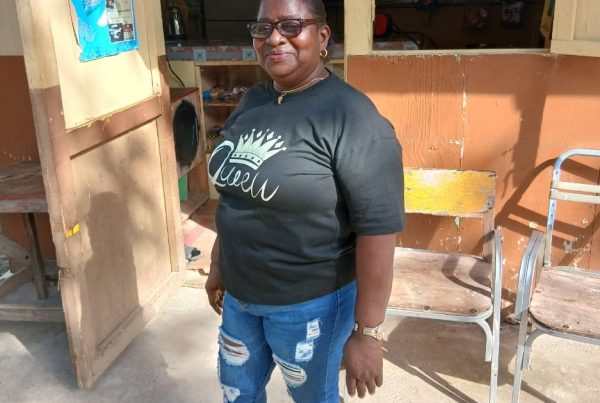Photo Caption: JN Bank Business Relationship and Sales Manager, Jennifer Clarke-Twiddle, addresses congregants under the theme “Protecting the Family’s Financial Health at the Church of the United Brethren – Faith in St Andrew on September 21.
Amid the financial pressures being faced by some Jamaican households, several families were urged to be intentional about protecting their financial well-being during a Family Month service held at the Church of the United Brethren – Faith in St Andrew on September 21.
Addressing the congregation under the theme “Protecting the Family’s Financial Health,” JN Bank Business Relationship and Sales Manager, Jennifer Clarke-Twiddle, emphasised that financial health is achieved through a disciplined approach to managing resources.
“It is easy to interpret financial health as being wealthy, driving a nice car, or living in a big house. However, it’s about how well we manage what God has placed in our hands,” she sermonised.
The banker also underscored overspending, high-interest debt, lack of emergency planning, and conflict over finances between spouses as threats to financial stability in families.
“One of the biggest dangers is spending without tracking where the money is going. Many families live pay cheque to pay cheque not because they don’t earn enough, but because they don’t have a clear plan for their income. Without a budget, it’s easy to spend money on non-essentials and then wonder why there’s nothing left at the end of the month. A budget is simply a plan that tells your money where to go instead of wondering where it went,” she explained.
“Saving is not about how much you earn; it’s about making financial planning a habit. Start small. Even $1,000 a week can become your emergency fund. Over time, that grows into a cushion that will keep you from going into debt when the unexpected happens. Without some form of emergency savings, one crisis can push a family into debt and financial despair,” she added.
Mrs Clarke-Twiddle suggested that the first step to protecting family’s finances is to create a plan.
“Sit together as a family, or at least as a couple, and write down your income and expenses. Be realistic and most importantly, pray over your finances. Invite God into the conversation.”

JN Bank Business Relationship and Sales Manager, Jennifer Clarke (right) in discussion with Alecia Campbell (left) and Jaiann Wilkinson about financial health at the Church of the United Brethren – Faith in St Andrew on September 21.
Referencing the biblical story of Joseph in Genesis 41, who stored grain during the years of abundance to provide for the years of famine, Mrs Clarke-Twiddle emphasised that proactive planning can safeguard households in difficult times.
“Joseph’s preparation protected not just his family, but an entire nation. That’s what happens when we manage our resources well. We are able to meet our own needs and be a blessing to others,” she maintained.
Noting that society is driven by a culture of instant gratification, often beyond what people can afford, she stressed that financially healthy families are those who live within their means, manage resources wisely, set aside funds for emergencies, and avoid unnecessary debt.
“High-interest debt, especially from credit cards, payday loans, and hire-purchase arrangements, can quietly strangle a family’s finances. It limits your ability to save, to invest, and even to give,” she cautioned.
“Not all debt is bad. Sometimes debt is unavoidable, for example, a home mortgage or a reasonable student loan, but we must avoid high-interest debt that keeps us enslaved. If you are already in debt, make a plan to pay it off step by step. Snowball your payments. Focus on the smallest debt first, then roll that payment into the next one,” she advised.
The banker urged families to start afresh, make new choices, break free from debt, and build a better future for their children regardless of their current financial situation. Furthermore, she highlighted the importance of teaching children about money from an early age and involving them in age-appropriate financial decisions.
“If we want the next generation to be good stewards, we have to train them now.”
Mrs Clarke-Twiddle encouraged parents to teach their children to tithe, even from small allowances; to save; and to nurture generosity by involving them in outreach initiatives.
She further advised that families should plan for their future security. Health and life insurance, she explained, could prevent a medical crisis or untimely death from turning into a financial disaster, while insurance safeguards the assets that families have worked hard to acquire. She added that preparing a will, though sometimes uncomfortable to consider, could help prevent disputes and ensure that loved ones are cared for according to one’s wishes.
“Protecting your family’s financial health is not something that happens overnight. There will be moments when you get it right and moments when you make mistakes. What matters is that you stay committed,” Mrs Clarke-Twiddle maintained.





